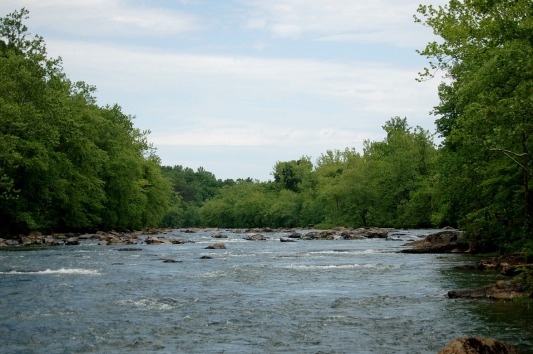
“(T)o provide guidance for the stewardship and enhancement of the water quality and natural resources of the Rappahannock River Basin. The Commission shall be a forum in which local governments and citizens can discuss issues affecting the Basin’s water quality and quantity and other natural resources. Through promoting communication, coordination and education, and suggesting appropriate solutions to identified problems, the Commission shall promote activities by local, state and federal governments, and by individuals, that foster resource stewardship for the environmental and economic health of the Basin.”
The Commission has no power to promulgate or enforce regulations regarding the Rappahannock Watershed. Section 62.1-69.28.B. in the Code of Virginia, the General Assembly establishes the following powers for RRBC to utilize as guidelines for fostering sound stewardship for the Rappahannock River Basin.
- Communicate, including through legislative recommendations, Commission views to local, state and federal legislative and administrative bodies, and to others as it deems necessary and appropriate.
- Undertake studies and prepare, publish and disseminate information in reports and in other forms related to the water quality and natural resources of the Basin and to further its purposes and mission.
- Enter into contracts and execute all instruments necessary or appropriate.
- Perform any lawful acts necessary or appropriate.
- Establish a nonprofit corporation as an instrumentality to assist in the details of administering its affairs and in raising funds.
- Seek, apply for, accept and expend gifts, grants and donations, services and other aids, from public or private sources. Other than those from member Jurisdictions and those appropriated by the General Assembly, funds may be accepted by the Commission only after an affirmative vote by the Commission or by following such other procedure as may be established by the Commission for the conduct of its business.
- Establish balanced advisory committees that may include representation from agricultural, environmental, resources-based, industrial, recreational, riparian landowner, development, educational and other interests as it deems necessary and appropriate.
- Develop rules and procedures for the conduct of its business or necessary to carry out its purposes and mission, including, but not limited to, selecting a chair and vice-chairs, rotating chairmanships, calling meetings and establishing voting procedures. Rules and procedures developed pursuant to this subdivision shall be effective upon an affirmative vote by a majority of the Commission members.